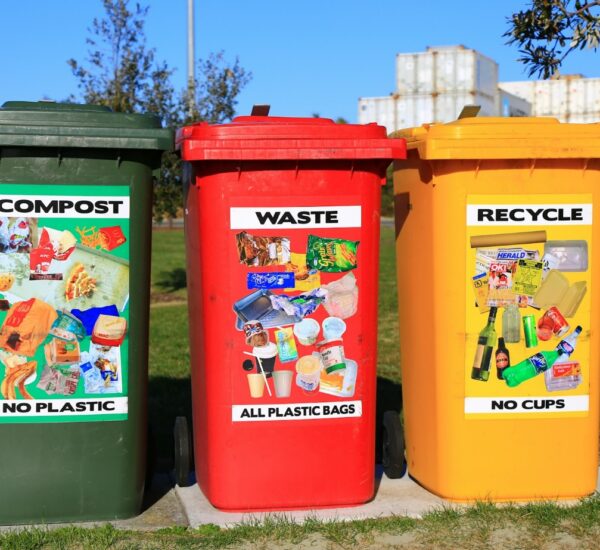The imperative need to reduce the carbon footprint of businesses is paramount in a sustainability-focused world. At the heart of this transformation lies waste management, a critical yet often intricate aspect. This in-depth exploration will focus on three essential facets to guide businesses towards more sustainable waste management.
As companies embark on the quest for sustainability, waste management emerges as an unavoidable priority. This article delves into the challenges, innovative solutions, and the impact of translation in this domain, providing a practical roadmap for a reduced carbon footprint.
Practical Challenges in Corporate Waste Management
The first step is to demystify the specific challenges that businesses face in their day-to-day waste management. From complex waste streams to the need to adapt to ever-changing regulations, this section provides a comprehensive insight into practical obstacles that demand tangible solutions.

Photo by Gary Chan on Unsplash
From the diversity of generated waste to continually evolving regulatory constraints, corporate waste management is a complex terrain. Understanding these challenges is crucial for developing effective strategies.
Innovative Strategies: The Power of Transformation
The second stage explores real-world examples of companies that have successfully transformed their approaches to waste management, thereby achieving significant reductions in their carbon footprint. Innovative strategies such as source reduction, creative recycling, and the adoption of sustainable materials are highlighted to inspire other companies to follow suit.
Pioneering companies have demonstrated that waste management can be a source of innovation. By embracing bold strategies, they showcase that it is possible to reduce the carbon footprint while remaining economically viable.
Translation and Multilingual Communication: Catalysts for Global Change
The third section explores the often underestimated role of translation in waste management. By facilitating transparent and multilingual communication, translation becomes a catalyst for the global dissemination of best practices, as seen with companies like https://belfast-translations.uk. Concrete examples illustrate how effective communication can overcome linguistic barriers and expedite the adoption of sustainable practices.

Photo by Marek Piwnicki on Unsplash
Translation is not merely a linguistic necessity but a powerful tool to make waste management initiatives accessible to a global audience. This often overlooked aspect plays a crucial role in the overall transformation towards more sustainable waste management.
In conclusion, reducing the carbon footprint of businesses in waste management is a complex yet necessary journey. By understanding practical challenges, drawing inspiration from success stories, and acknowledging the vital role of translation, companies can undertake a significant shift towards more sustainable waste management. It is not just a social responsibility but also an essential strategy for a future where sustainability is at the core of every thriving business.




